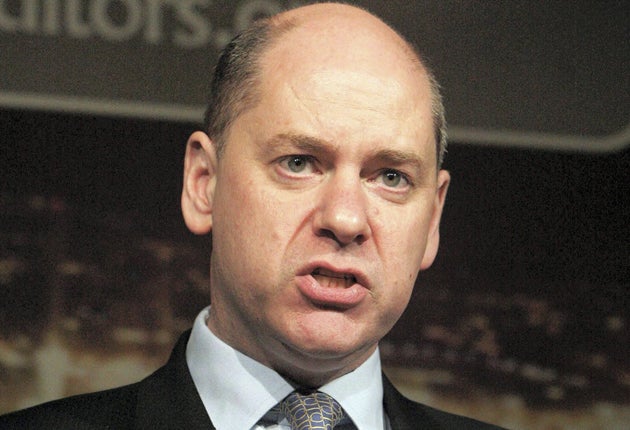Ministers are exaggerating the terrorist threat, say MPs

Your support helps us to tell the story
From reproductive rights to climate change to Big Tech, The Independent is on the ground when the story is developing. Whether it's investigating the financials of Elon Musk's pro-Trump PAC or producing our latest documentary, 'The A Word', which shines a light on the American women fighting for reproductive rights, we know how important it is to parse out the facts from the messaging.
At such a critical moment in US history, we need reporters on the ground. Your donation allows us to keep sending journalists to speak to both sides of the story.
The Independent is trusted by Americans across the entire political spectrum. And unlike many other quality news outlets, we choose not to lock Americans out of our reporting and analysis with paywalls. We believe quality journalism should be available to everyone, paid for by those who can afford it.
Your support makes all the difference.The government's assessment of the threat of terrorism in the UK is overstated and has undermined the case for imposing tough new anti-terror laws, an influential committee of MPs and peers has warned.
Ministers insist that Britain still faces a "public emergency" eight years after the 11 September attacks on America and has used it to justify a swathe of controversial legislation, including holding terror suspects without trial.
But members of Parliament's joint committee on human rights said that such a high level of threat was not credible because it had been continuously maintained for such a long period of time.
Andrew Dismore MP, chair of the committee, said: "There is no question that we face a serious threat from terrorism, or that we need legislation to counter that threat. The question is, are the counter-terror measures we have in place justifiable, on an ongoing basis, in light of the most up to date information we have."
The committee's report, published yesterday, called for a review of all terror legislation passed since 11 September and asked whether it was realistic to say the state of emergency which existed at the time still remained now.
Mr Dismore said: "The idea that we have consistently faced an emergency level threat for over eight years since September 11 is, we believe, questionable. What is needed now is not consolidation, but a thoroughgoing, evidence-based review of the necessity for and proportionality of all the counter-terrorism legislation passed since that day. This should be an urgent priority for the next Parliament."
The Committee also criticised the head of MI5, Jonathan Evans, for his failure to appear before the committee. "It is unacceptable that the Director General of the Security Service refuses to appear before it to give public evidence – despite giving public lectures and media interviews – that would allow the Committee to make judgements about the necessity and proportionality of counter-terrorism measures," the report said.
The committee also criticised the Government's narrow definition of complicity in torture as "significant and worrying". It said that in light of details published in the case of Binyam Mohammed, the case for an urgent independent inquiry into the allegations of complicity in torture was now "irresistible".
Join our commenting forum
Join thought-provoking conversations, follow other Independent readers and see their replies
Comments